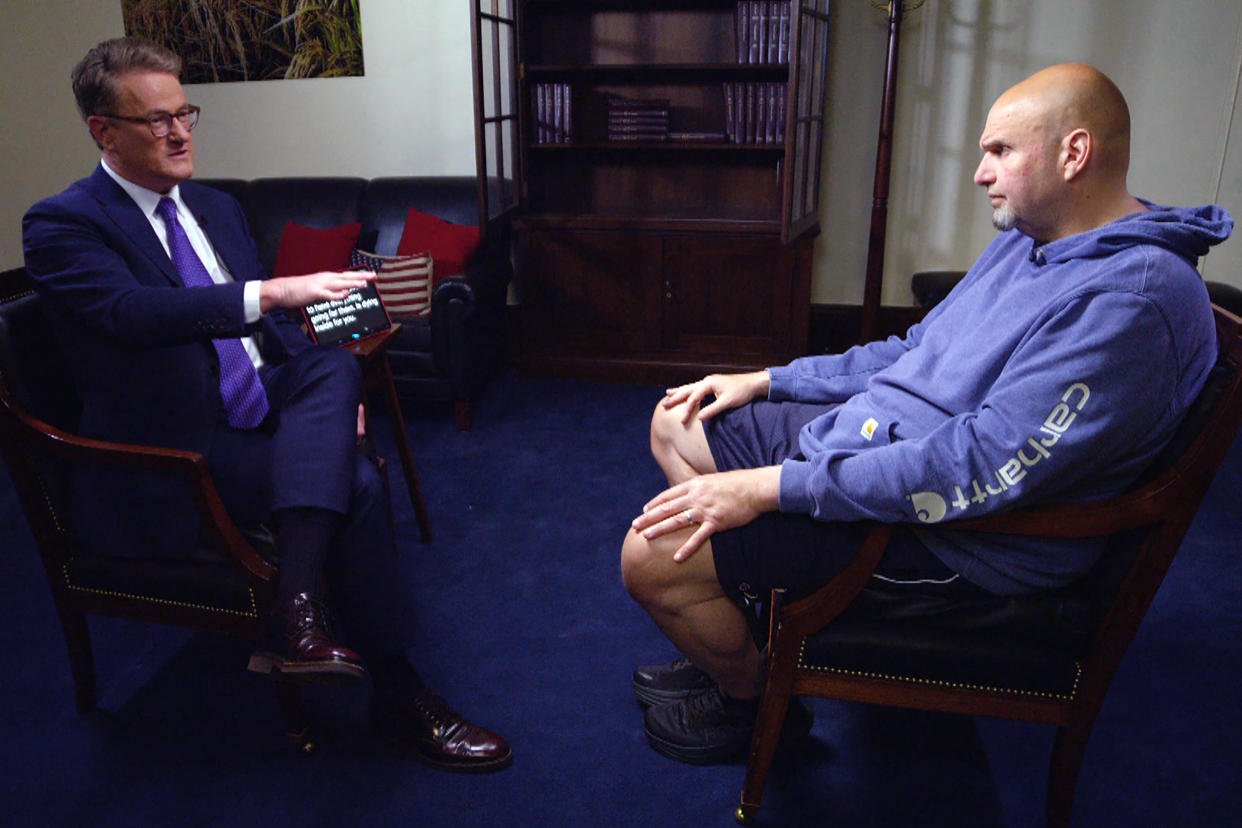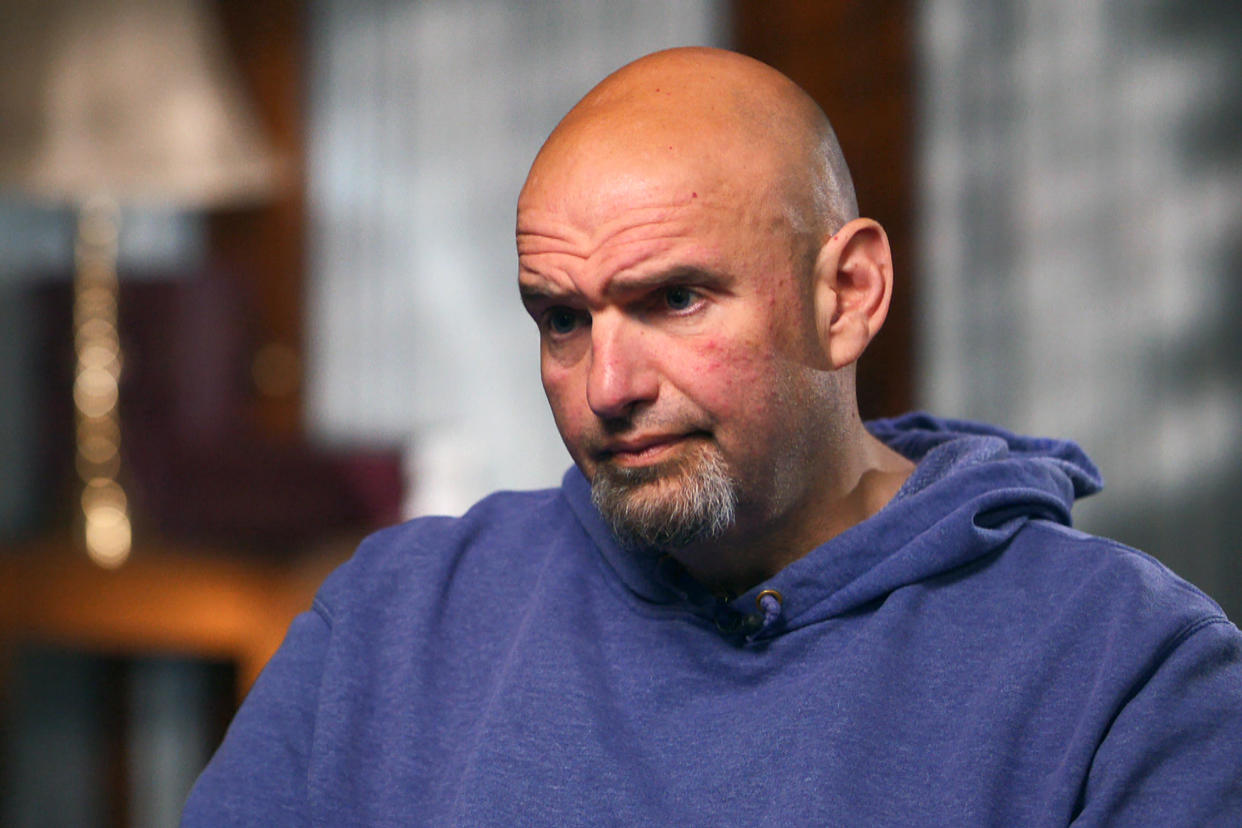Fetterman shares experience battling depression and seeking treatment in emotional interview
WASHINGTON — Sen. John Fetterman, D-Pa., said on MSNBC's "Joe Scarborough Presents" that he is "begging" people who are struggling with their mental health to seek treatment like he did, saying it "saved me from my anguish."
Just over a month after he was discharged from Walter Reed National Military Medical Center in the Maryland suburbs of Washington, Fetterman told Scarborough in an emotional interview that aired Monday night about his recent experience battling clinical depression and the inpatient treatment that helped him recover.
Fetterman, who had a stroke nearly a year ago, said his depression worsened after he was elected to the Senate in November.

"I stopped getting out of bed. And it wasn’t because I was just tired. It was just because I didn’t want to," he said, adding that his children were confused about why he wasn't happy after he won a grueling campaign.
Fetterman was sworn into the Senate in January and hospitalized in early February after he felt lightheaded. A week later, he checked himself into Walter Reed to get treatment for depression.
"I’ll never forget the decision," Fetterman told Scarborough about what prompted him to seek help. "It’s like, you know ... if I don’t do something to claim my life, that this could be, you know, tragic."
Fetterman said that he was "skeptical" at the beginning of the process and that he was in a "rough place" for the first few weeks. "One of the most profound things," he said, was "actually my brother, like, my best friend said, you know, he had a moment where he was scared that you may not be coming back."
"I scared my family," he said, adding that he didn't care about any political fallout because he felt "this is my last best chance to save myself."
For the first three weeks in treatment, Fetterman said, he didn't see his children, because he was "ashamed of what I'd done." But after several weeks, they visited, bringing Post-it notes that Fetterman's dad had left for him and writing dozens of encouraging notes that were hung up all over his room.

Fetterman described the moment as a turning point in his treatment, saying his family's love was his "catalyst."
“That’s what sparked my idea that it’s, like, there’s a whole big, big reason to get better,” he said. “You have a lot to fight for.”
Ultimately, he said, "one of the best sentences of my life was my doctor [saying], ‘Your depression is in remission.’”
"Putting my kids through the scaring of losing me really was the single biggest motivation to really take it on," he said.
When he was admitted, Fetterman had severe symptoms of depression but no suicidal ideation, Dr. David Williamson, the neuropsychiatry chief and medical director at Walter Reed, said at a briefing when Fetterman was discharged in late March, according to his Senate office. Fetterman’s symptoms worsened in the eight weeks before he was admitted, and he had low blood pressure that could have affected brain circulation, Williamson noted at the time.
Fetterman’s depression was managed with medication therapies, Williamson said. In the weeks that followed, Fetterman’s doctors said, his mood improved, and he began sleeping, eating and hydrating.
Fetterman was discharged from Walter Reed on March 31, having checked in on Feb. 15.
Depression and mental health crises are a "human issue," Fetterman said, regardless of political party. Encouraging people to seek treatment should be a national priority, he said, and it's one of his own personal goals.
"There’s a big duty to pay it forward on my redemption," he said.
If you or someone you know is in crisis, call 988 to reach the Suicide and Crisis Lifeline. You can also call the network, previously known as the National Suicide Prevention Lifeline, at 800-273-8255, text HOME to 741741 or visit SpeakingOfSuicide.com/resources for additional resources.
